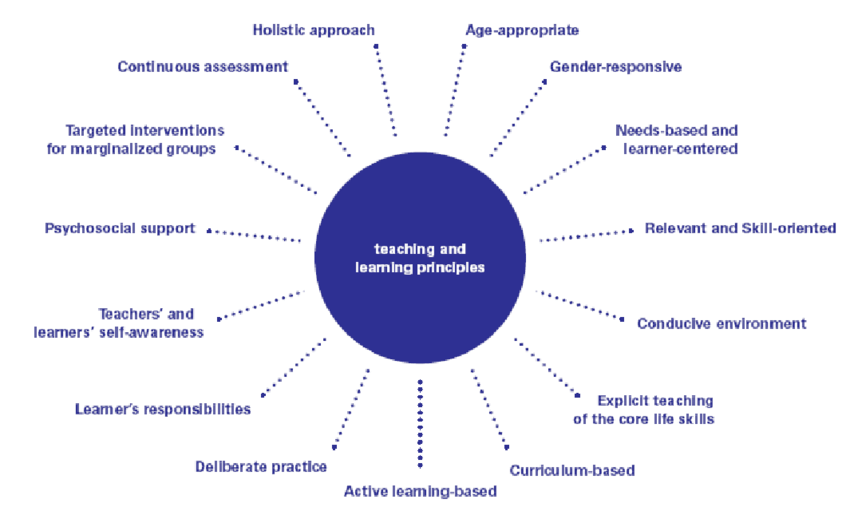Concept and process of Teaching
Concept and process of Teaching
EDUCATION: - Education is the process of facilitating learning, or the acquisition of knowledge, skills, values, beliefs, and habits. Educational methods include teaching, training, storytelling, discussion and directed research. Education frequently takes place under the guidance of educators however learners can also educate themselves. Education can take place in formal or informal settings and any experience that has a formative effect on the way one thinks, feels, or acts may be considered educational.
DEFINITIONS
TEACHING-
Teaching is an active process in which one person shares information with others to provide them with the information to make behavioral changes.
LEARNING:
Learning is the process of assimilating information with a result and change in behavior.
Introduction of Teaching: -
1. Teaching is an art
- It is an activity, which is practiced with skill.
- It cannot be reduced to any exact sequential series of actions, it involves two dynamic factors
- The mind's natural activity of the learner.
- The intellectual guidance on the part of the teacher, with principal dynamic factor
2. Teaching is a science, because it is based on the body of systematically derived knowledge, converted to principles with which to guide its practices.
Definition of Teaching: -
“Teaching is immediate mastery of particular knowledge or skill. It is concerned with growth and development of whole personality of the student – her mind, spirit, character and effective behavior.”
" Teaching is a form of interpersonal influence aimed at changing the behavior potential of another person “
- According to N.L. Gage
“Teaching is defined as an interactive process primarily involving classroom talk which takes place between teacher and pupil and occurs during certain definable activity.” -Edmund Amidon
“Teaching process is designed and performed to produce change in student behaviour.” -Clarke
“Teaching is an intimate contact between a more mature personality and a less mature one which is designed to further the education of the latter.” -Morrison
“Teaching is concerned with the activities which are concerned with the guidance or direction of learning of others.” -Ryan
Nature and Characteristics of Teaching
- Teaching is giving information
- Teaching is causing to learn
- Teaching is a matter of helping the child to respond to his environment in an effective manner.
- Teaching is helping a child to adjust himself to his environment.
- Teaching is stimulation and encouragement
- Teaching is guidance
- Teaching is Training the emotions of the child.
- Teaching is both a conscious and an unconscious
- process
- Teaching is a means of preparation
- Teaching is formal as well as informal.
- Teaching is an art
- Teaching as a skilled occupation
- Teaching as a relationship
- Teaching is both an art and science.
Functions of teaching
- Creating learning situations.
- Motivating the child to learn.
- Arranging for conditions which assist in the growth of the child's mind and body.
- Turning the children into creative beings.
- Giving information and explaining it.
- Diagnosing learning problems
- Utilizing the initiative and play urges of the children to facilitate learning.
- Making curricular material.
- Evaluating, recording and reporting.

Quality of Good Teaching
- Good teaching recognizes individual differences
- Good teaching is causing to learn
- Good teaching previous opportunities for activity.
- Good teaching involves skill in guiding learning.
- Good teaching is kindly and sympathetic.
- Good teaching is co-operative
- Good teaching involving careful planning
- Good teaching is democratic
- Good teaching provides desirable and selective information.
- Good teaching reduces the distance between the teacher and the taught
- Good teaching is not tied to any method
- Good teaching helps the child to adjust himself to his environment.
- Good teaching is progressive
- Good teaching is both diagnostic and remedial
The Quality of a Good Teacher-
- Knowledge of the subject matter
- Patience
- Intellectual Curiosity
- Confidence
- Compassion
- Achievement
- Planning
- Awareness
- Mentorships
- Maturity
- Community Involvements
- Organization
- Vision
- Context
- Mission
- Enthusiasms
Maxims of teaching
The meaning of maxims of teaching is very simple. Those general ideas and methods of doing the work which prove helpful in the task of teaching are termed as maxims of teaching. These maxims have been formulated by the psychologists, educationists, pedagogues and preceptors on the basis of their experiences. These maxims are reliable and are universally applicable.
- Principle of Activity or Learning by Doing
- Principle of Play-Way
- Principle of Individual Differences
- Principle of Goal Setting
- Principle of Stimulation
- Principle of Association
- Principle of Motivation
- Principle of Self-Education
- Principle of Readiness
- Principle of Effect
Glimpse of prominent maxims of teaching
- From Known to Unknown
- From Simple to Complex
- From Concrete to Abstract
- From Analysis to Synthesis
- From Psychological to Logical
- From Actual to Representative
- From Empirical to Rational
